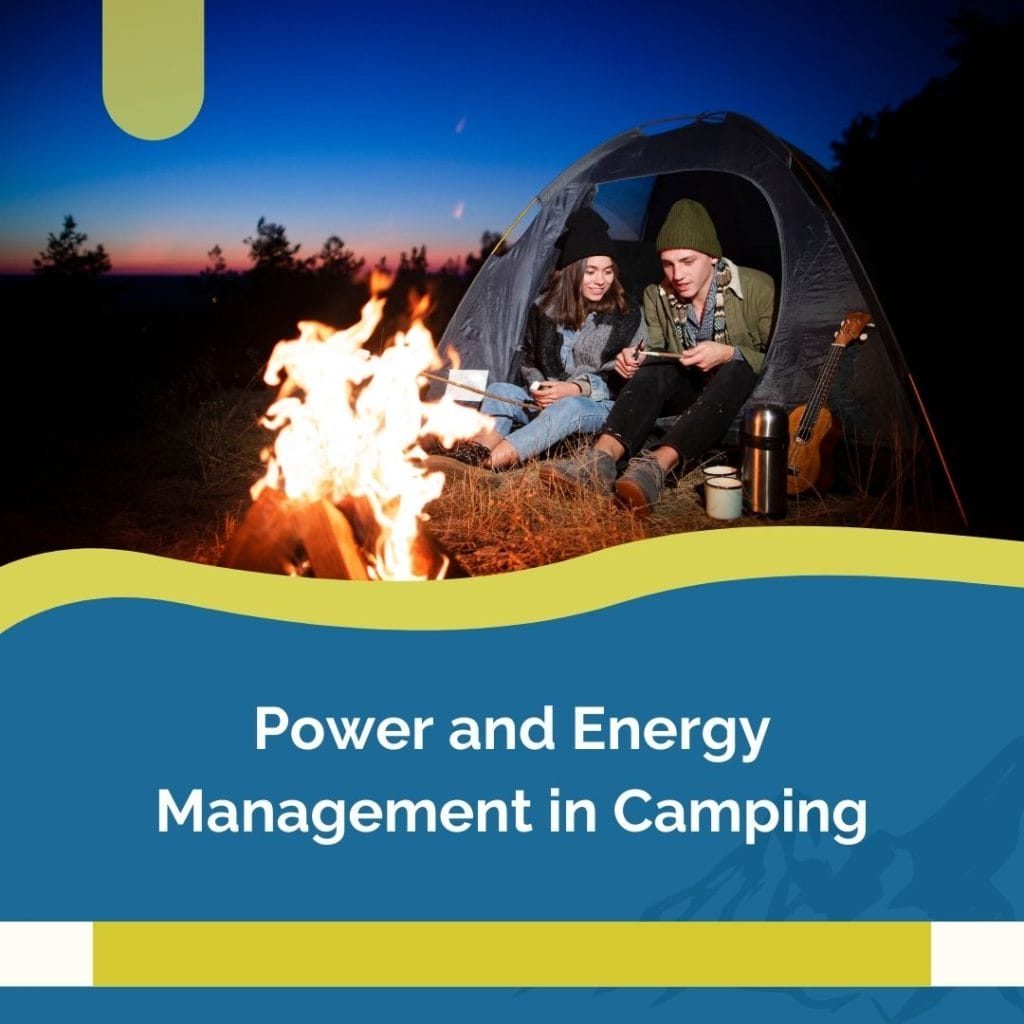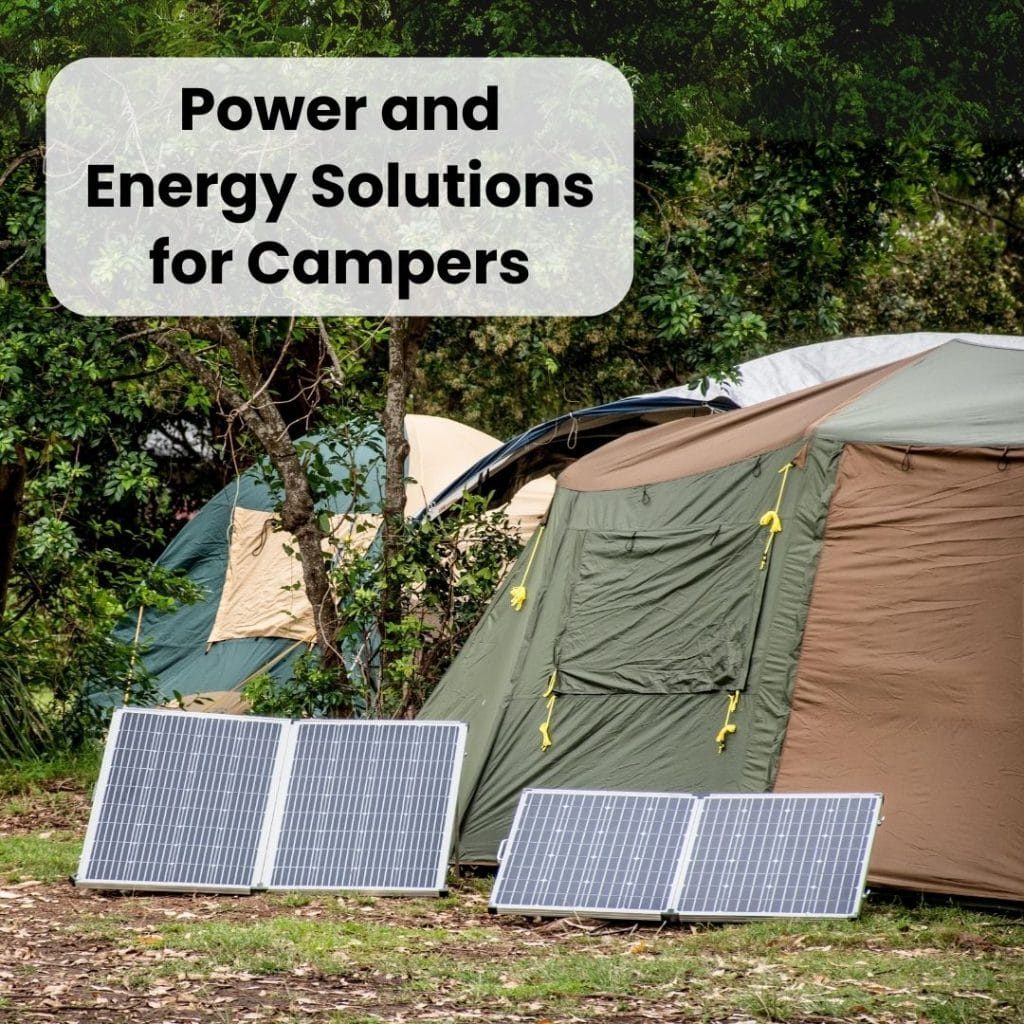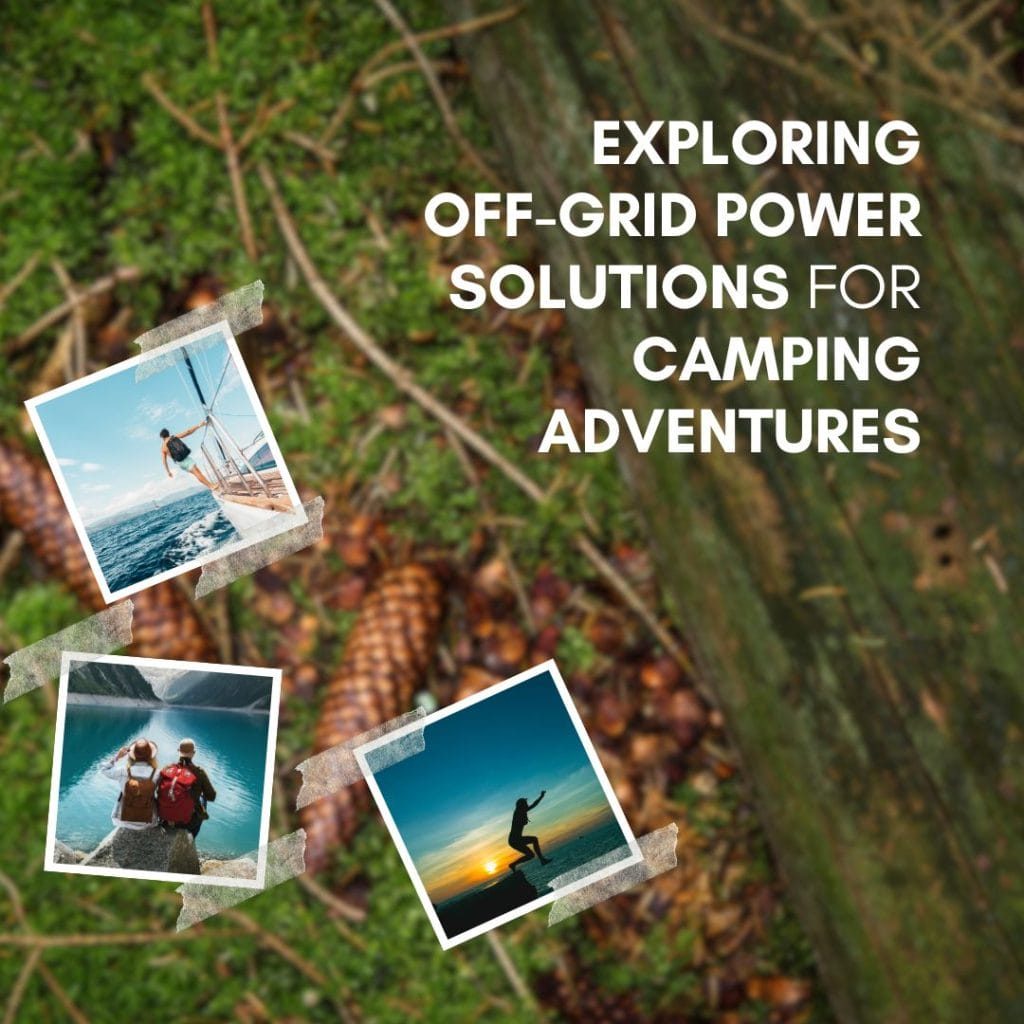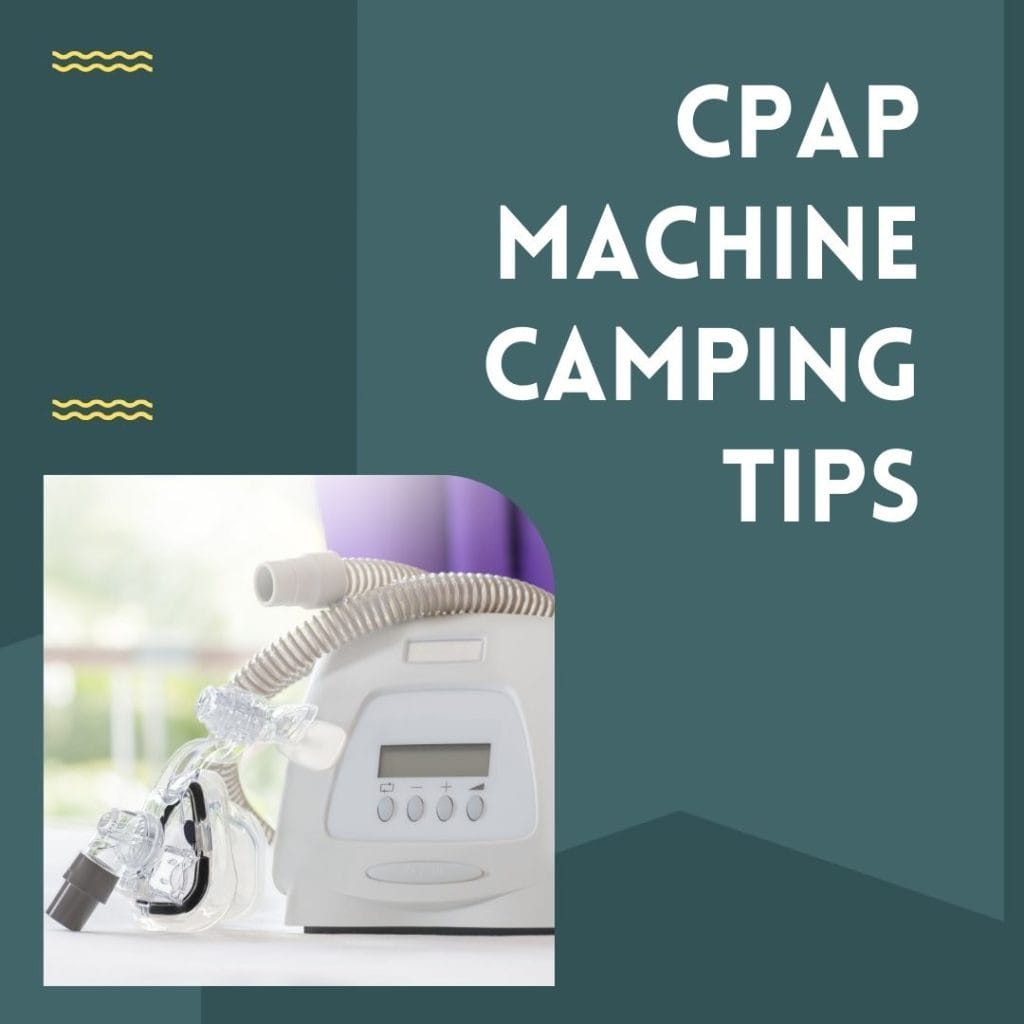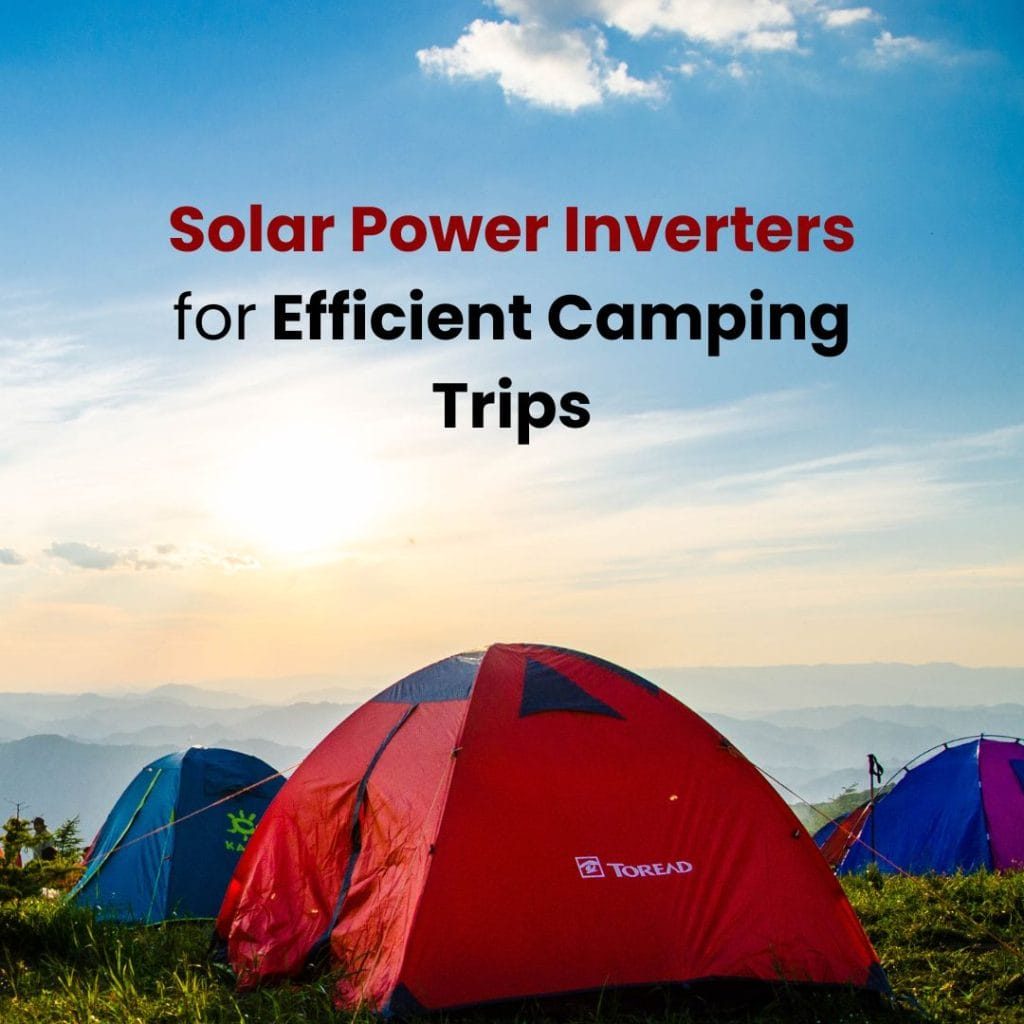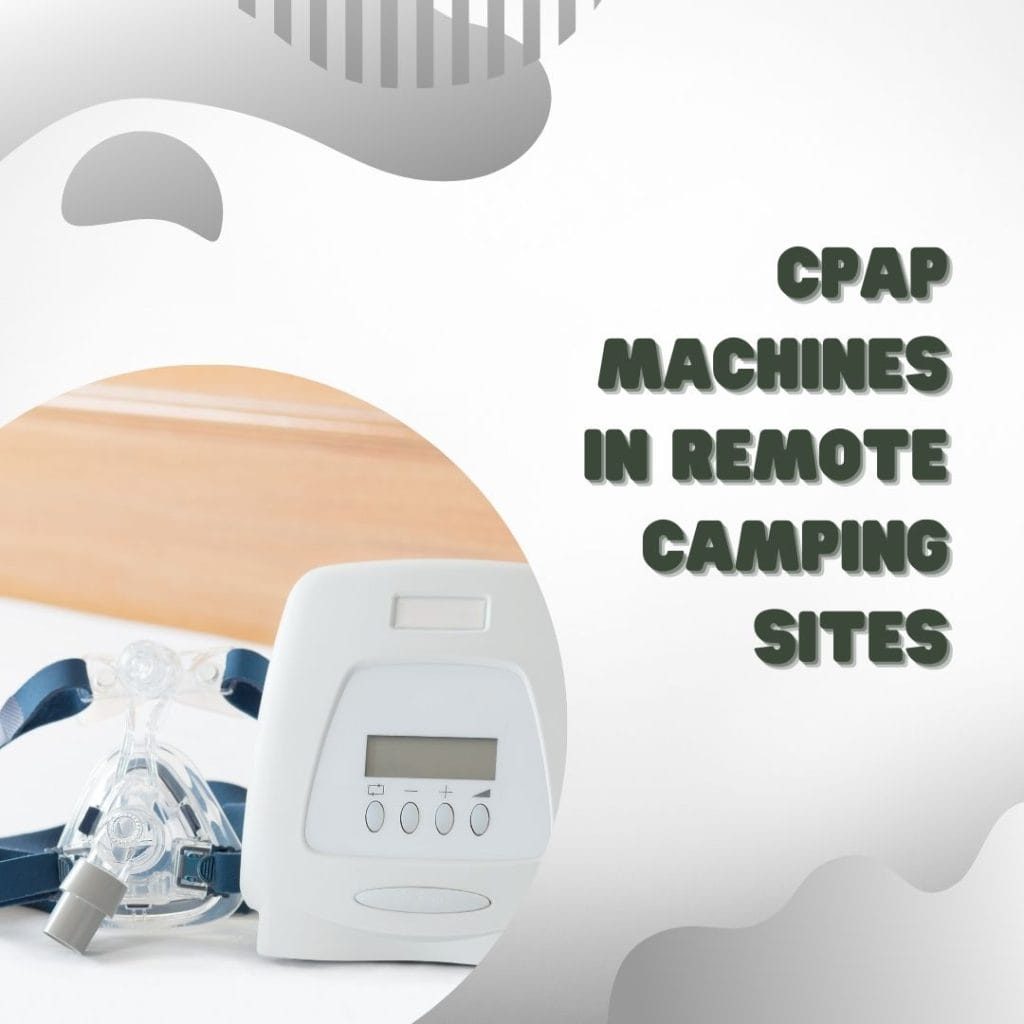Camping can be a source of trepidation for those dependent on CPAP machines. However, innovative CPAP Camping Power Solutions have now made it possible for everyone to enjoy the great outdoors. These power solutions are not only reliable but also highly portable, ensuring uninterrupted usage of CPAP machines while camping.
Power Solutions for Using CPAP Machines While Camping
Planning a camping trip without compromising your CPAP therapy is entirely possible with our helpful guide to CPAP camping:
- Two main power options to consider: Utilize a campsite with available power outlets or embrace an off-grid experience with a reliable CPAP battery.
- Be mindful when selecting your battery: Deep-cycle batteries are a fitting choice for longer trips, whereas CPAP-specific batteries work best for shorter durations.
- Preserve your battery life: Remember, using a heated humidifier can significantly deplete your battery faster.
- Think about portability: A travel-sized CPAP machine can offer both convenience and high-tech features for your outdoor adventure.
- Consider the option of solar charging: Solar panels are an efficient way to recharge your CPAP battery, increasing your off-grid duration.
How to Power Your CPAP Machine While Camping
Venturing into the great outdoors with sleep apnea is not only possible but can be a truly enjoyable experience with the right preparation! We’re here to guide you on getting the most out of your adventure. Your camping plans with a CPAP machine can generally follow two routes:
- Camping at Sites with Electrical Outlets – This option provides a comfortable experience for those who don’t want to worry about power supply.
- Taking Your Therapy Off-Grid with a CPAP Battery – Perfect for those seeking a true wilderness experience away from traditional amenities.
Each option has its advantages and trade-offs, which we’ll delve into in the subsequent sections. So let’s embark on this journey together!
Visit a Campsite With Power
Opting for a powered campsite is a convenient choice for anyone using CPAP therapy, as it eliminates the need for extra equipment and power compromises. Campsites such as KOA campgrounds and State Parks often come with electricity provisions throughout, thereby providing a seamless therapy experience.
One significant advantage of this option is the ability to use CPAP humidification without worrying about battery drainage. When powering your CPAP machine via battery, the heated humidifier tends to consume power at a faster rate, shortening the therapy runtime significantly. However, by choosing to plug in at a powered campsite, you can comfortably dodge this issue while reaping the full benefits of your therapy.
The appeal of powered campsites extends beyond their electricity supply. They are typically well-maintained, clean, and come with additional amenities like bathrooms, showers, and WiFi.
However, powered campsites aren’t without their drawbacks. High demand can lead to them being fully booked on popular weekends, which may require you to adjust your camping plans. Also, these campsites often attract a large crowd, so it may not be the best choice for those seeking isolation or a quieter environment.
If you appreciate the solitude and rugged beauty that comes with being far from civilization, a powered campsite might not meet your needs. In such cases, you might want to consider the alternative: powering your CPAP machine with a reliable battery.
Take Your Therapy Off-Grid
Taking your CPAP therapy off-grid provides the opportunity for a more secluded, tranquil camping experience. However, this option requires careful planning and preparation due to the limited power supply. The longevity of your off-grid adventure is largely dependent on your CPAP battery packs. Most packs are capable of powering your machine for one to two nights before requiring recharging.
For those planning more extended excursions, such as deep-forest hiking or mountain trekking, ensuring you have additional batteries is crucial. Having two or three on hand can significantly extend your time away from civilization.
While it might be tempting to forego your CPAP therapy for a few nights to lighten your load, the drawbacks of skipping it are considerable. Without your CPAP machine, you could miss out on the enhanced sleep quality, improved concentration, boosted energy levels, and mood stability that successful CPAP therapy brings.
Moreover, without regular CPAP therapy, you put yourself at greater risk for health issues like high blood pressure, cardiovascular disease, stroke, and diabetes. These all significantly impact your ability to enjoy your vacation to the fullest. In summary, while packing your CPAP machine might seem burdensome, the benefits undeniably make it worthwhile.
Benefits of CPAP Batteries
Many camping enthusiasts view off-grid camping as the ultimate outdoor adventure, a goal attainable primarily through the use of batteries. The ability to take your CPAP anywhere you go is liberating. Most batteries are FAA approved, meaning they satisfy in-flight use regulations. They are also compatible with a wide array of popular CPAP and APAP machines.
Drawbacks of CPAP Batteries
Despite their utility, batteries do possess some drawbacks. Some Lithium-ion batteries can’t withstand extreme heat, which can result in a fire or battery meltdown due to adverse chemical reactions. Additionally, while batteries are undeniably useful, they can be rather costly, with prices ranging typically from $200 to $400, and some reaching nearly $700. Furthermore, depending on your specific machine and settings, your battery may deplete faster than anticipated, particularly if a power inverter is required.
Two Ways to Power Your CPAP Off-the-Grid
While camping off-the-grid, there exist two distinct methods for powering your CPAP machine:
- Utilizing a Deep-Cycle Lead-Acid Battery –
- Adopting a Portable CPAP Battery –
1: Using a Deep Cycle Battery
Deep-cycle batteries, available at auto parts stores or mobility scooter retailers, are designed to provide sustained power over extended time periods, unlike cranking batteries found in personal vehicles which discharge significant power initially and then require recharging. If you’re not deterred by their weight and are considering RV camping with your CPAP machine, deep-cycle batteries are a cost-effective off-grid power solution. Here’s what you’ll need to make it work:
- DC Adapter Cable: These cables, with alligator clips, connect to the positive and negative terminals of the deep-cycle battery. The power output is then directed to a cigarette lighter plug, where your machine’s DC cable can be plugged in. Some deep-cycle batteries come with a built-in cigarette lighter plug, eliminating the need for an adapter.
- Inverter: This device transforms the DC power supplied by the battery into AC power, which your machine can utilize. Certain machine models require a specific type of inverter known as a Pure Sine Wave Inverter. To connect an inverter to a car battery, ensure it has alligator clips to enable connection to the deep cycle battery. The inverter then converts the power to AC, and you can plug in your machine as you would at home.
However, using a car battery for your CPAP machine has drawbacks:
- Weight: Car batteries are heavy, making them impractical for backpacking over long distances. Lithium-ion batteries are lighter and better suited for extended camping trips.
- FAA Approval: Deep-cycle lead-acid batteries, given their toxic chemicals, are not FAA approved for use on flights or in checked baggage. Thus, they cannot accompany you on air travel. Recharging these batteries can also be challenging.
Despite these limitations, if you can work around them, deep-cycle batteries prove to be a robust power source for travelers, trekkers, and campers.
2: Using a CPAP Battery Pack
CPAP batteries have seen significant advancements over the years, becoming lighter and more affordable, thus increasing their popularity among users. However, it’s crucial to remember that a universal battery doesn’t exist. Many of these batteries come with DC inputs tailored for certain machines. In the absence of a DC input, an inverter becomes necessary.
At CPAP.com, we’ve streamlined the process of identifying the power requirements of your specific machine. This information is conveniently located under the “power” tab on our product pages. Instead of forcing a favorite battery to work with your machine, it’s far more efficient to connect your CPAP device to a battery designed to match its precise requirements.
The Best CPAP Battery for Camping
Introducing the EXP96 Pro, the best CPAP battery for camping if your machine comes with a DC adapter. This lithium-iron-phosphate battery allows for power from a 12V cigarette-lighter style socket. With a capacity of 307.2 Watt-Hours, it provides four to six nights of uninterrupted CPAP therapy from a single charge when the CPAP humidifier is disabled and an average pressure setting of 5-10 cm H2O is used.
The EXP96 Pro is designed to handle more extreme temperatures, withstanding up to 132° F, much higher than the 104° F limit of standard lithium-ion batteries. Plus, its life cycle boasts an impressive 5,000 recharges, far surpassing the 500-charge lifespan of most lithium-ion batteries.
Although the EXP96 Pro may not feature a standard AC outlet like the Portable Outlet UPS Battery, it compensates by offering higher energy efficiency through its DC power use. An optional solar panel charger provides an alternative charging option to the included AC and DC chargers, perfect for staying off the grid for longer periods.
In case of a power failure, the EXP96 Pro is designed to automatically switch to backup battery power when setup between your CPAP and a wall outlet. This feature makes it an excellent choice for powered campsites as well.
For machines requiring AC power, or those without a DC adapter, the Portable Outlet UPS Battery is a recommended alternative. It comes with a standard AC outlet, a 3.0 A fast-charging USB port, and a capacity of 159 Wh. This battery recharges in 4-5 hours and can power your CPAP machine for one to two full nights before needing a recharge. Although it doesn’t boast the same capacity as the EXP96 Pro, it serves as a great backup battery for those using a powered campsite.
3 Tips for Bringing Your CPAP Camping
Tip 1: Consider Using a Portable CPAP For Camping
When planning a camping trip, the choice of CPAP machine can greatly impact the overall experience. A travel-sized CPAP machine, with its compact size and light weight, is an ideal choice. This machine fits into small spaces, such as a backpack, without adding too much extra weight. This portability allows you to pack more camping equipment than you would if you were to carry a traditional home unit.
Key advantages of using a travel-sized CPAP machine include:
- Dual Functionality: With a travel-sized CPAP machine, you have a device suitable for both home use and while on the road, eliminating the need for multiple machines.
- Advanced Features: Travel machines typically come packed with advanced features that may not be present in older home units, enhancing the user experience.
- Versatility: Travel CPAPs are designed to be user-friendly in various situations, including in a car or on a plane, making them an excellent choice for frequent travellers.
While currently there are no CPAPs available with a built-in battery, many users find that a combination of a travel machine and a travel battery effectively meets their needs.
Tip 2: Avoid Using Power Inverters
The use of inverters with CPAP machines while camping can have significant downsides. One major drawback is the additional power demand that inverters place on your battery. When you use an inverter, it draws power from the battery to convert DC power to AC. This is happening concurrently with the machine’s power draw, effectively doubling the drain on your battery. This can lead to your battery depleting twice as fast compared to when an inverter is not in use.
However, there are instances where the use of an inverter is inevitable. For machines that are not DC compatible, an AC power source becomes a necessity, requiring a battery’s power to be converted to AC. In these cases, the key to efficient use of power lies in careful selection of your battery.
Ideally, you should opt for a battery specifically designed for your exact machine model. Take for example the Pilot-24 Lite, which was designed with the AirMini and other 24-volt machines in mind. This battery includes a cable that allows direct connection to these machines, eliminating the need for a power inverter. As a result, you can enjoy a longer-lasting charge from your battery, ensuring your CPAP machine operates efficiently throughout your camping trip.
Tip 3: Consider Charging Your Battery With Solar
Solar charging might not be the go-to choice for everyone, but it’s a game-changer for those who frequently venture outdoors and off-grid. One of the top-quality products currently available for this purpose is the EXP 360 Solar Charger, which is specifically designed for EXP batteries.
Although finding the right solar charging gear might be challenging, given the limited choices in the market, it’s important to note that these options typically cater to specific batteries, rather than being universal solutions. Solar panels can be invaluable camping companions — silently doing their job while you hike and relish the grandeur of nature.
By the time you return to camp in the evening, your battery will be charged and ready to power another night of uninterrupted CPAP therapy. Solar panels can significantly extend your time in the great outdoors by keeping your battery topped up, giving you the freedom to stay in the wilderness for longer periods.
Conclusion
In conclusion, careful planning and the right gear can make using your CPAP while camping a breeze. From considering a portable CPAP for camping to avoiding power inverters, and potentially embracing solar charging, each strategy plays its part in ensuring you get restful sleep under the stars. The right CPAP camping power solutions substantially enhance your camping experience, allowing you to enjoy nature without compromising your sleep therapy. Enjoy the great outdoors without worry, knowing you’ve prepared well for your CPAP needs.

